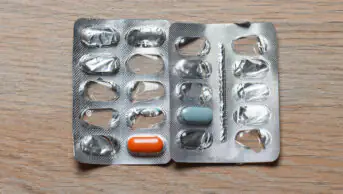
Shutterstock.com
More than a quarter of ADHD patients in the UK say they have had no medication since a patient safety alert warning of drug shortages was published in September 2023.
A survey of 1,054 UK patients carried out by charity ADHD UK revealed that 8% of respondents said they had had an uninterrupted supply of medicines since the shortage note, with 27% saying they had received no supply, 33% reporting that they had experienced “long gaps”, and a further 25% saying they had experienced “short gaps” in supply of their drugs. The remaining 7% did not answer the question.
The survey also found that 70% of respondents had rationed their own medicine as a result of the shortages.
The September 2023 alert warned that there were shortages of methylphenidate (Equasym: Takeda; Xaggitin: Martindale Pharma; Concerta: Janssen; and Xenidate: Mylan) lisdexamfetamine (Elvanse: Takeda) and guanfacine (Intuniv: Takeda), adding that supply was expected to “resolve at various dates between October and December 2023”.
However, on 28 November 2023, Takeda told The Pharmaceutical Journal that there may be “intermittent disruption” of its ADHD products until April 2024.
A previous shortage notice was issued for methylphenidate in 2022 and, in July 2023, a medicine supply notice was published for atomoxetine, another ADHD drug.
Ade Deekae, a senior pharmacist in the Child and Adolescent Mental Health Service at NHS Fife, told The Pharmaceutical Journal that some patients have been sent letters by NHS Fife Health Board, advising them on how to taper their use of guanfacine (Intuniv; Takeda), a selective alpha-2 receptor agonist indicated for the treatment of ADHD in children and adolescents aged 6–17 years for whom stimulants are not suitable, not tolerated or have been shown to be ineffective.
Patients who are taking guanfacine, particularly those on higher doses, should not stop taking it abruptly since it can cause side effects, including increases in blood pressure and heart rate.
Deekae said: “Some patients that could not do without ADHD treatment were switched on to stimulants.
“For those that had tried stimulants in the past and could not tolerate them, they were advised to continue with treatment and community pharmacies advised to source for unlicensed guanfacine, which is also available on the market.
“It is taking about seven to ten days for pharmacists to get stock of unlicensed [guanfacine] from suppliers. So, we have had to call up majority of patients to establish stock they have at home and also advise or arrange for repeat prescription early so to accommodate for delays.”
Takeda UK wrote to healthcare professionals on 16 October 2023 advising them not to initiate any new patients on any strength of guanfacine until the supply interruption is resolved.
In the letter, Takeda UK said that supplies of Intuniv prolonged-release tablets 4mg were expected to return the week beginning 27 November 2023, and supplies of the 1mg, 2mg and 3mg strengths were expected to return the week beginning 4 December 2023.
On 16 November 2023, the Specialist Pharmacy Service (SPS) published resources to support the response to ADHD medicines shortages.
In its guidance, SPS suggests that, in exceptional cases where it is not possible to slowly reduce guanfacine, blood pressure and pulse should be monitored on day 2 and day 4 after stopping treatment and, if blood pressure is raised at day 4, blood pressure and pulse should continue to be measured once a week until it reaches baseline.
A spokesperson for Takeda said: “We have seen a significant increase in demand for ADHD medications over the past two years, which has had an ongoing impact on supply across the industry in the UK.
“This increase in demand, in conjunction with intermittent production challenges at one of our contract manufacturing partners, have led to disruption in our supply.
“The impact the supply disruptions are having on patients and healthcare professionals is our biggest concern and we are doing our utmost to resolve this issue as quickly as possible.
“Ensuring future supply continuity for patients is our biggest priority and we are actively working to optimise our packaging operations, in order to increase our ability to manage unwanted variability in these processes and reduce the likelihood of future issues.”
- This article was updated on 29 November 2023 to include comment from Takeda


